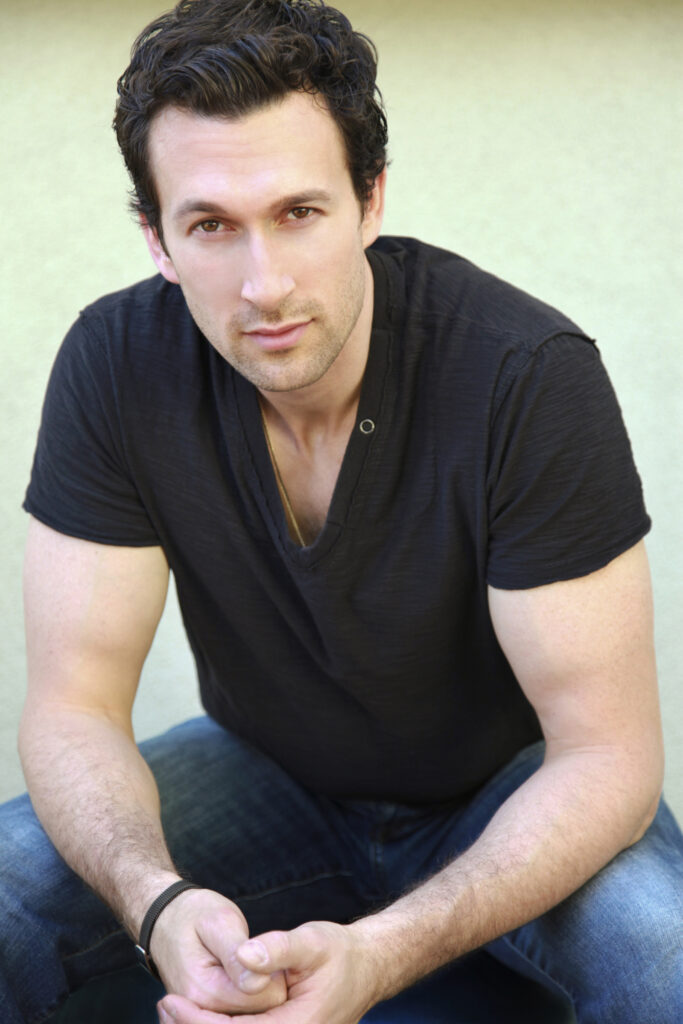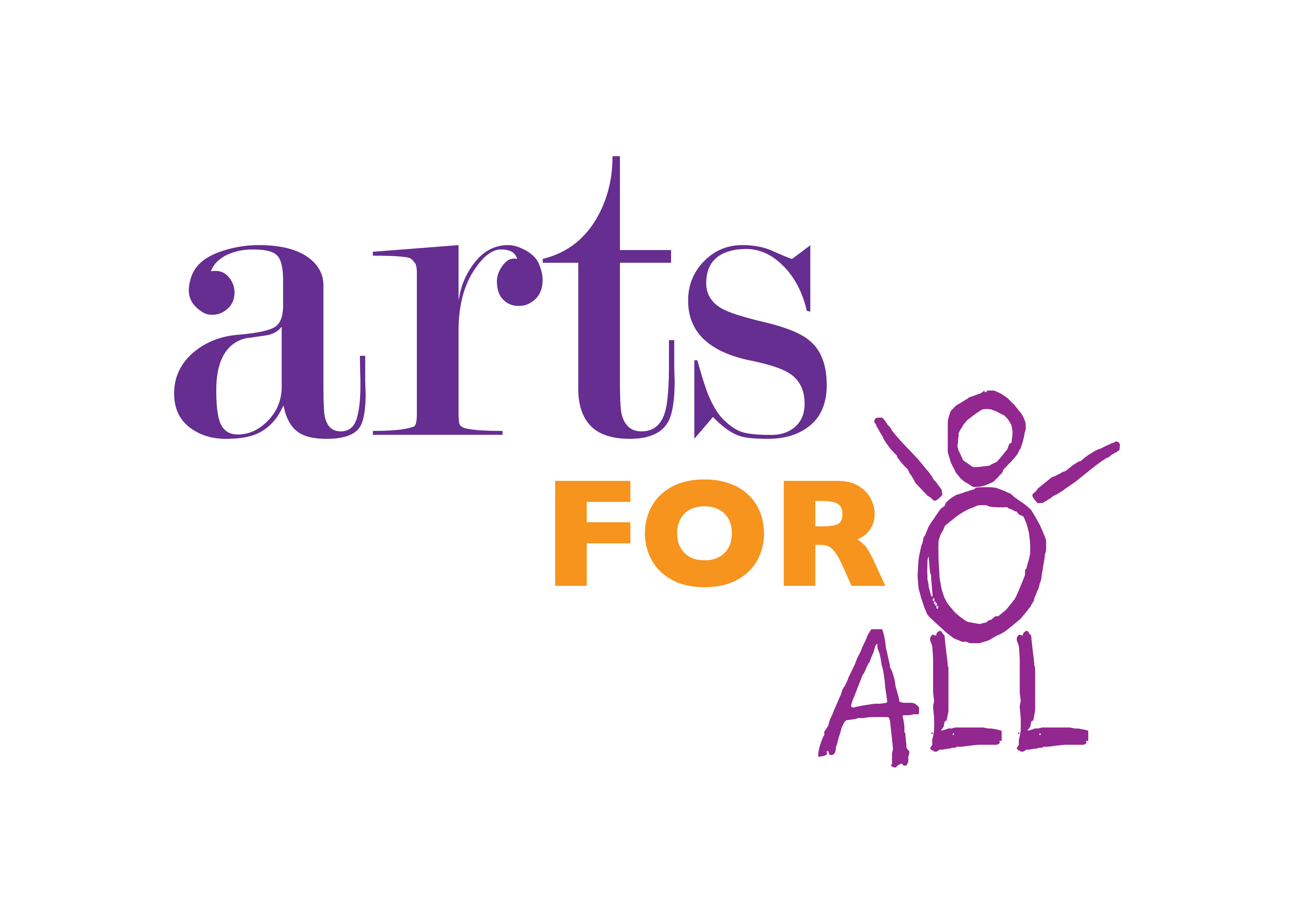Arts For All sat down with Broadway star Aaron Lazar, host of our 5th annual benefit Arts For All Goes Public, to talk about making it, the role of arts education, and how to find happiness. This is Part 1 of our 3-part interview.
In 3 words, please describe yourself as an artist.
(long pause)… Curious, determined, leader.
That’s great! Is there one moment that epitomizes when you knew you wanted to do this professionally?
 When I was in grad school doing the lead in Man of La Mancha, I had a moment exiting the stage after a performance when I just sort of broke down. It’s maybe happened one or two other times in my life where something I had done I just didn’t really know how I did it.
When I was in grad school doing the lead in Man of La Mancha, I had a moment exiting the stage after a performance when I just sort of broke down. It’s maybe happened one or two other times in my life where something I had done I just didn’t really know how I did it.
Lawrence Olivier once said that after doing Hamlet, he came off stage and people were like, “Don’t you feel amazing because of what you just did?” And he said, and I’m paraphrasing, “No, because I don’t know how I did it.”
But for me, it was just an overwhelming emotional feeling of, “I feel like I’m a vessel for something.” And that probably subconsciously motivated me to want to do this as a profession.
That idea of being a vessel is so interesting. What do you mean?
I don’t think we can really take credit for the gifts that we have. We can certainly work hard at improving them.
Have you ever had a feeling of challenge and growth on stage as an actor?
Yeah, The Light in the Piazza. It was just theatre at it’s best I think. And rare.
You must have felt very lucky.
Certainly. When you’re in your element doing what you’ve always wanted to do, at a level that feels commensurate with where you want to be and who you want to be doing it with, you certainly feel lucky, but the predominant feeling is one of just pure joy because you’re killing yourself 8 times a week and loving every twisted moment of it to try to give audiences a feeling they’ll never forget. Light in the Piazza was very emotional for me and very physically difficult to endure for a long run.
That artist/leader idea is so interesting. How would you characterize that leadership?
I feel like I’m in the infancy of what I want to do, aspirationally speaking. I want to influence the art form in as big a way as I can, and I want to be a leader in that, and I’m just starting to plant seeds that will hopefully grow in that direction.
Do you have a specific direction in mind? A dream project?
I’m working on a couple projects, but I just want to bring my taste to the art form and see if it measures up to what it feels like when I think of that potential. And just see! And if it does, then we’ll have a good thing going. And if it doesn’t, I will, as we do in this business, find another way.
There’s always another way. So thinking about leaders in the field, who do you admire, either professionally or personally, and why?
That’s a great question. I admire Manny Azenberg as a producer. He was a professor of mine at Duke. And I admire Adam Guettel as a composer and a lyricist. I admire Mike Nichols as a director. The list is long. I admire a lot of people. I think the people are at that level are at that level not because they’re a bunch of frauds, but because there’s something about them that has endured and will endure. And I want to be there.
You’ve achieved some name recognition and seem to be on your way to that level. Your name and reputation are well respected.
That’s nice to hear. It’s funny, being in Mamma Mia for the last nine months – a show that I never really saw myself doing – I’ve realized more and more that, well as Steve Martin says in his autobiography, Born Standing Up, “I spent 18 years making it: 10 years learning, 4 years refining, 4 years hitting it big.” That’s paraphrasing, but I’ve been doing this just over 10 years now, and only over the last year do I feel connected to a breakthrough in the refining phase, if we go by that model. And it’s a discovery – a discovery that I’ve been fulfilling an idea of a leading man that I was told I would be in school, and then got to New York, and you’re naturally put into boxes based on what you look like and how you sound and can you act, and all those things and that’s fine. That’s how the business works, and many businesses work that way.
But then, in your journey, you start to define yourself by your body of work. And in my case, I was cast in a lot of period pieces and serious romantic stuff, with departures here and there. But over the last year, Mamma Mia has really allowed me to find myself. And it’s funny, I’ve really found myself in a way that I haven’t been since I was 18. And I’m excited to bring that to the work because I think it’s going to open up space in my career and be important in the next phase of my career. But to know that any byproduct of the first phase of career is some respect for my name, that’s flattering and good to know because if there’s anything that I was trying to do in the first phase of my career, it was to honor the art form of the American musical theatre.
Thank you Aaron! Stay tuned for Part 2 and Part 3!
